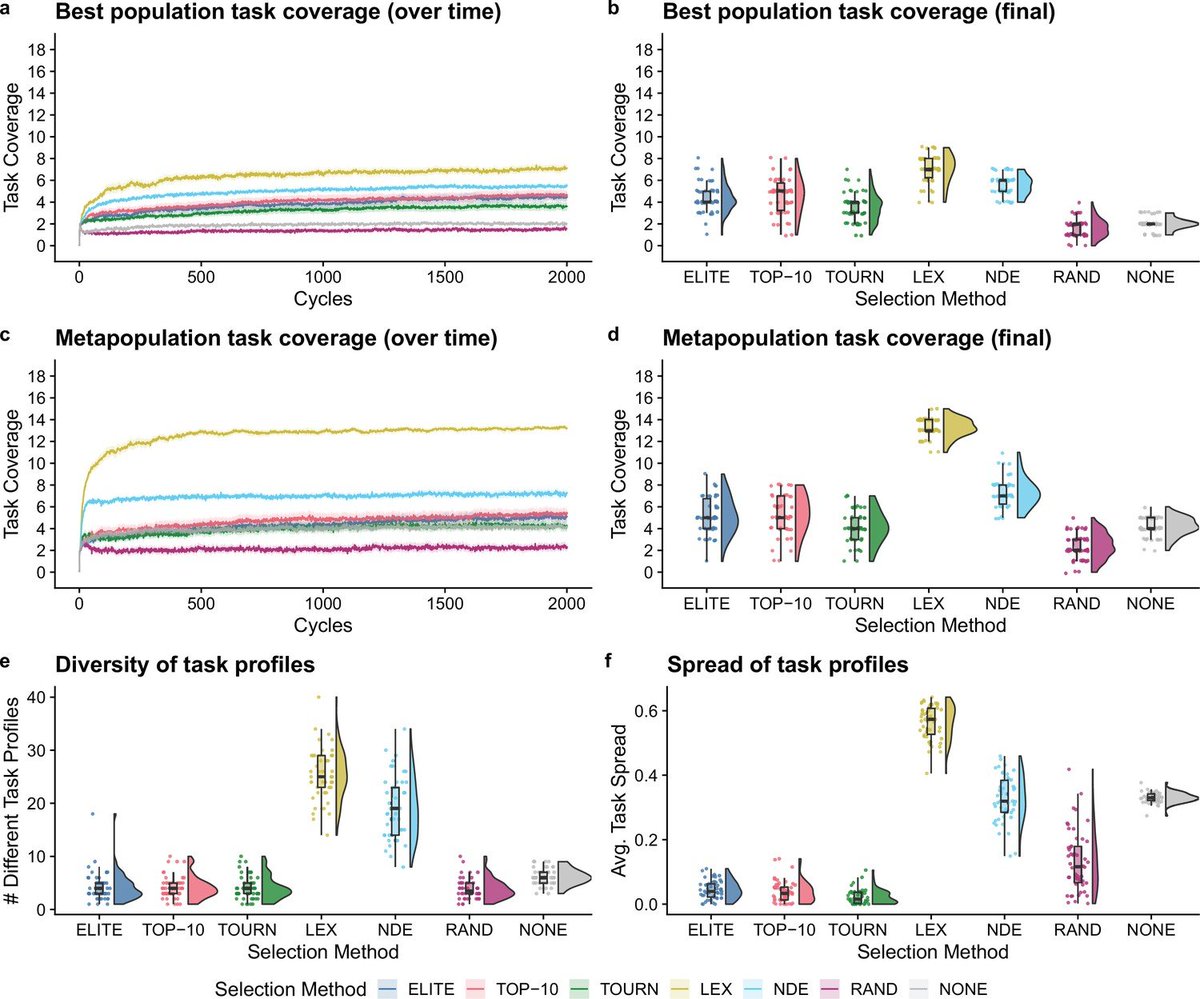
Luis Zaman
@LuisZaman
Assistant Prof. at University of Michigan in Complex Systems and Ecology & Evolutionary Biology. Find me on the other one, same username!
ID:51947712
http://www.zeeelab.com 29-06-2009 03:50:11
7,0K Tweets
3,5K Followers
2,2K Following

I'll save the full tweetorial for Alex Lalejini and/or Luis Zaman but this is a really fun paper! Definitely check it out if you're interested in either of the following:
1. Steering evolution
2. Cross-talk between evolutionary computation and evolutionary biology











I can’t say enough great things about CABmicrobe! Amazing science and fun people. Super excited to get started on new collaborations.
Thank you María RG, Alejandra Rodriguez, Ana E. Escalante, Eria Rebollar and all the others that made this happen.



